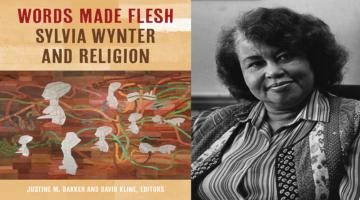Today’s seekers of social justice need to grapple with what the legacies of past freedom fighters actually demand of us.”
“The ways the civil rights movement has came to be honored over the past 35 years has largely placed racism and struggle in the past.
In this series, we ask acclaimed authors to answer five questions about their book. This week’s featured author is Jeanne Theoharis. Theoharisis Distinguished Professor of Political Science at Brooklyn College of the City University of New York. Her book is A More Beautiful and Terrible History: The Uses and Misuses of Civil Rights History.
Roberto Sirvent: How can your book help BAR readers understand the current political and social climate?
Jeanne Theoharis:The civil rights movement has become a national fable, increasingly central to the ways the United States celebrates the power of its democracy. My book attempts to excavate and analyze this fable—how it functions and what it misses—to then tell a broader history of the movement.
The fable began to take hold when Ronald Reagan’s long opposition to a holiday honoring Dr. King gave way to seeing its political utility. “We've made historic strides,” Reagan explained when he signed the legislation in 1983, “since Rosa Parks refused to go to the back of the bus. As a democratic people, we can take pride in the knowledge that we Americans recognized a grave injustice and took action to correct it. And we should remember that in far too many countries, people like Dr. King never have the opportunity to speak out at all.” Reagan’s remarks zeroed on what would become key elements of the national celebration of the civil rights movement: that there had beenan injustice, but once these courageous individuals freely pointed it out, it was corrected, and so proved the greatnessof American democracy.
“The fable has been wielded to criticize movements like Black Lives Matter as being too disruptive, reckless and not living up to the peaceful, respectable likes of Dr. King.”
A scrappy story of good guys, bad guys and happy endings, the ways the civil rights movement has came to be honored over the past 35 years has largely placed racism and struggle in the past. And it rests on American exceptionalism, a journey “towards a more perfect union” as President Obama would put it.
As new movements have come onto the national scene, the fable has been wielded to criticize movements like Black Lives Matter as being too disruptive, reckless and not living up to the peaceful, respectable likes of Dr. King, despite the ways such criticisms actually parallel criticisms of the civil rights movement in its day.
What do you hope activists and community organizers will take away from reading your book?
The book pivots around the idea of the histories we get vs. the histories we need. The heart of the book, nine chapters, examines the gaps and omissions in the fable and what a fuller history shows us. This history offers much for where we are today—foregrounding movements across the North, the role of ‘polite’ racism in maintaining racial inequality, the extent of the movement’s goals (from criminal justice to economic justice to global justice) the breadth of its leadership and the pivotal role of young people and women, and the extent of opposition it encountered. The last chapter returns to the Montgomery bus boycott, arguably one of the most iconicized moments of the movement, to foreground what it took, how it happened, the variety of people who pushed it forward and sustained it, and the strategies they used—offering many lessons for organizers today.
I think the fable burrows into the ways all of us come to imagine the Black freedom struggle of the past—arguably the most important American social movement of the 20th century—and what social change can look like today. So to deepen our history of the movement is to give us new lenses on our present and where we go from here.
We know readers will learn a lot from your book, but what do you hope readers will un-learn? In other words, is there a particular ideology you’re hoping to dismantle?
There’s a lot we need to unlearn about Rosa Parks and Martin Luther King. Many students when they get to my civil rights courses are initially uninterested in King and Parks. In many ways, they have been turned into Thanksgiving parade balloons—passive, unthreatening, larger than life, bobbing along proud of our progress.
Both Parks and King have been stripped of their substance and the breadth of their work around criminal justice, economic justice, and global justice. We have missed their critique of Northern racism—what Rosa Parks, who spent more than half of her life in Detroit, described as “the Northern promised land. Despite the ways popular mythology frames King discovering the problems in the North with the 1965 Watts uprising, he actually criscrossed the North and West in the early 1960s, calling for “a liberalism in the North that is truly liberal, that firmly believes in integration in its own community as well as in the deep South.”
“We have missed Parks’ and King’s critique of Northern racism.”
Both King and Parks saw how culture of poverty ideology was central to how Northern injustice was maintained and rationalized. They rejected the constant talk of black criminality by calling out white malfeasance from police to landlords to city officials and condemned the ways Northern whites blamed black people living in ghettos “for their own victimization.” They located the uprisings of the mid-1960s as “the result of resistance to change that was needed long beforehand.”
While there are many other organizers that need to be highlighted, there’s also a need to return to the people we think we know to see them anew and grapple with what their legacy actually demands of us today.
Who are the intellectual heroes that inspire your work?
The book is dedicated to Julian Bond; I had the great fortune of getting to take a class on the civil rights movement with Professor Bond and then a few years later to serve as his teaching assistant. His course emphasized how the civil rights movement was made; the central role of young people; the decisions, strategies and contestations that went into it; and the power of the grassroots. All of these lessons have deeply informed the ways I now write and teach about the Black freedom struggle.
James Loewen’s Lies My Teacher Told Me and Michel-Rolph Trouillot’s Silencing the Past demonstrate the power of interrogating the histories we get vs the histories we need. A new wave of movement scholarship ushered in by Charles Payne and John Dittmer in the mid-1990s foregrounded the Black organizing tradition; Barbara Ransby, Chana Kai Lee, Sherie Randolph, Katherine Charron, Brian Purnell, Clarence Taylor, Dayo Gore, Peter Levy, Timothy Tyson, Adina Back, Patrick Jones, Matthew Delmont and a host of others have widened the ways we see the movement’s temporal, ideological, and regional expansiveness. I have spent the past two decades collaborating with Komozi Woodard on how to write and teach this history; that intellectual partnership has indelibly shaped the contours of my work.
“Rosa Parks drew solace and sustenance from the long history of black resistance before her.”
Finally for me, Rosa Parks always points the way forward. A trove of her papers opened at the Library of Congress while I was working on this new book and provided a rare glimpse into her political ideas. Repeatedly in her writings, Parks underscored the pressure put on black people not to dissent and the difficulties in mobilizing in the years before her bus stand. Highlighting that it was “not easy to remain rational and normal mentally in such a setting,” she explicitly refused to naturalize or normalize the ability to get through American racism. And she repeatedly noted how those who challenged the racial order like she did were labeled “radicals, sore heads, agitators, trouble makers.” A prodigious reader, she drew solace and sustenance from the long history of black resistance before her, placing the movement’s actions in that long continuum of black protest. Stressing our responsibility to act, she urged “a critical honest look at ourselves in regards to the contribution we are making.” I continue to try to do her work and vision justice.
In what way does your book help us imagine new worlds?
The book title is taken from James Baldwin’s A Talk to Teachers. “American history,” he explains, “is longer, larger, more various, more beautiful and more terrible than anything anyone has ever said about it.” This fuller history of the civil rights movement is more sobering, more revealing of the deep and ongoing structures of American racism. But it is also more beautiful. By expanding our understanding of who the courageous were, it suggests who will lead us today: welfare moms, high school students and church ladies, rural and urban, women and men, teenagers through octogenarians, from Brooklyn to Birmingham to South LA.
What the history of the civil rights movements shows us is that when change does happen, it is often because people labored for years and sometime decades in the wilderness. They kept going, to quote Rosa Parks, “when all efforts seemed in vain.” And in witnessing their persevering courage, others found their own. They used tactics that had been used before and forged new ones, combining economic disruption, painstaking organizing, outside support, internal fund-raising, and proactive legal strategizing, And they drew on religious faith, labor organizing , community networks, love and anger. Our struggles are not the same—but this history gives us much sustenance for the work ahead.
Roberto Sirventis Professor of Political and Social Ethics at Hope International University in Fullerton, CA. He also serves as the Outreach and Mentoring Coordinator for the Political Theology Network. He’s currently writing a book with fellow BAR contributor Danny Haiphong called American Exceptionalism and American Innocence: The Fake News of Wall Street, White Supremacy, and the U.S. War Machine.
COMMENTS?
Please join the conversation on Black Agenda Report's Facebook page at http://facebook.com/blackagendareport
Or, you can comment by emailing us at comments@blackagendareport.com



















